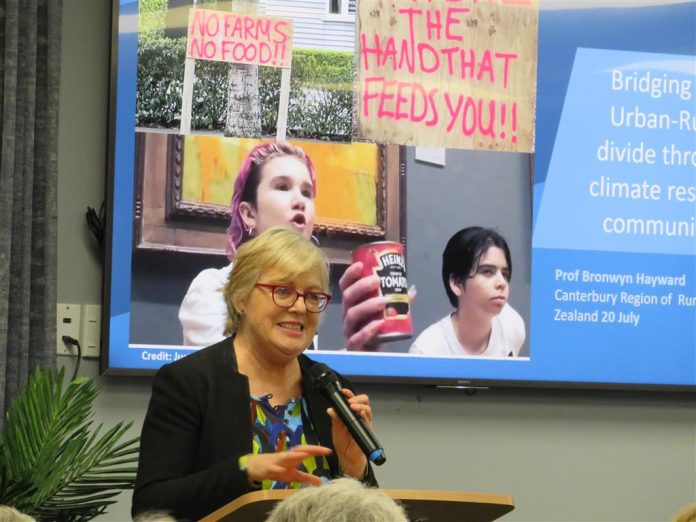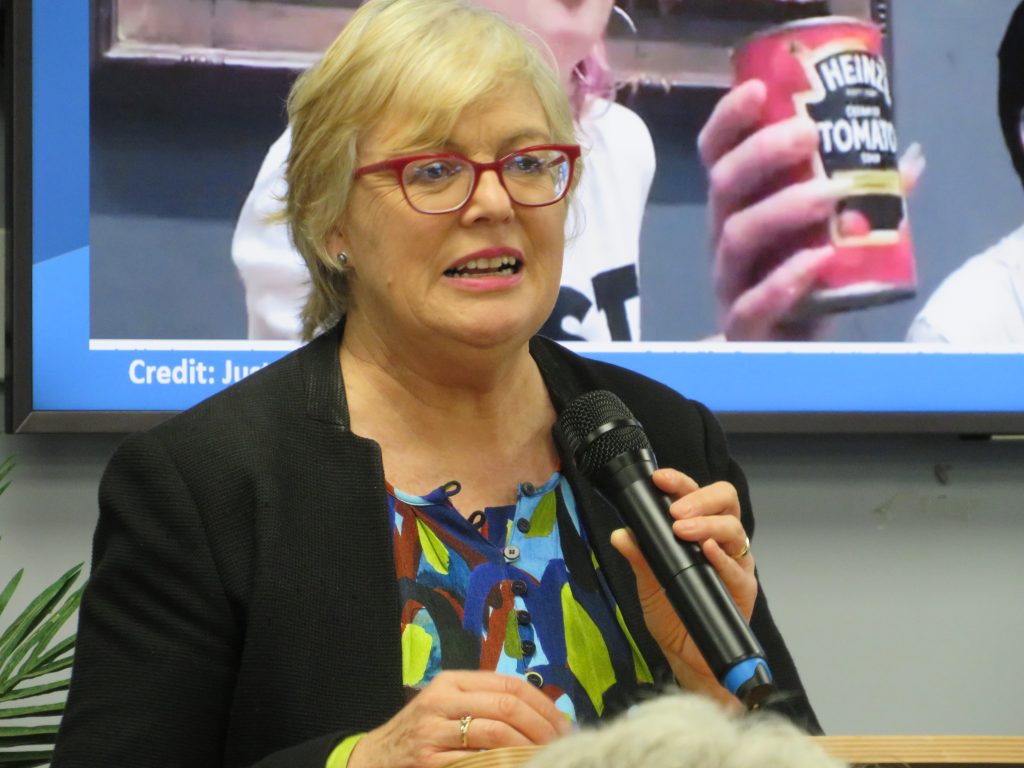
Political scientist Bronwyn Hayward speaking to members at the recent Rural Women New Zealand region 2 conference in Ashburton.
‘‘How do you get people’s attention at the same time when we’ve got so many other pressures on ourselves’’, political scientist Bronwyn Hayward asks.
Professor Hayward is aformer lecturer at Lincoln University, now based at Canterbury University. She is also an Intergovernmental Panel on Climate Change (IPCC) author.
She was made a Member of the New Zealand Order of Merit (MNZM) in New Zealand’s 2021 New Year’s honours. She was recognised for her services in political science, particularly sustainability, climate change and youth.
Professor Hayward was guest speaker at the recent Rural Women New Zealand region 2 conference in Ashburton.
She said she had always admired Rural Women NZ as a crucial organisation ‘‘able to link and bridge at a very important time in politics and connect people who don’t always listen to each other’’.
‘‘It’s really important the work that you do,’’ she said to members.

She spoke about global protests, climate change and increasing world temperatures.
‘‘People are often talking so angrily past each other and not really listening to the common shared problems we have and how difficult they are to fix,’’ she said.
There is also a wider gap between people in politics on key issues, making it harder to get acommon language.
‘‘So how do you get people’s attention at the same time when we’ve got so many other pressures on ourselves, without also unduly scaring people so they just switch off and stop listening.
‘‘(It’s about) not being alarmist, sticking to the facts, but not so boring that people stop listening,’’ she said.
The earth’s temperatures have warmed between 1.1 and 1.2 degrees since the 1880s ‘‘when we started emitting a lot of emissions from fossil fuels in the industrial revolution that we all benefit from.’’
It doesn’t sound like much.
But that’s the heating of the whole atmosphere, the ocean, the mountains everything, she said.
‘‘The temperature experiences can be much hotter but it also disrupts the climate cycles so you get these really big storms, you get much heavier rainfall.’’
There has been more attribution science in the past five years focused on how much climate changes contributes to ordinary storms.
They’re getting much faster at calculating it and how it may be 25 percent wetter or heavier, she said.
‘‘We’re still going to have those storms
– the big storms, big snow dumps, the long droughts – we’ve always had them, but the underlying temperature is making it more intense, and for longer.’’
IPCC is looking at risks such as biodiversity loss, tree mortality, wildfire increases and loss of kelp forests.
Temperature changes also affect pollination, sea level rise and coastal inundation, tourism and recreation.
‘‘The big worry is we don’t know what will happen after the world has warmed, about say two degrees, because we don’t know if those trees, and those systems, will keep going.’’
There are 3.3 to 3.6billion people living in high vulnerability hotspots – places at risk – of climate change.
In New Zealand there is a risk at Gisborne, South Shore in Dunedin, and New Brighton in Christchurch.
Climate change is having a disproportionate effect on independent groups as well.
It is concerning 70 percent of young people today, like the threat of nuclear war did Professor Hayward in her youth.
‘‘There is a feeling that they can’t do anything about it, which ironically reduces when they think there are people that are monitoring, and thinking about practicing, and seeing daily business.’’
‘‘We need to find away talk when there is deep emotion,’’ she said.



